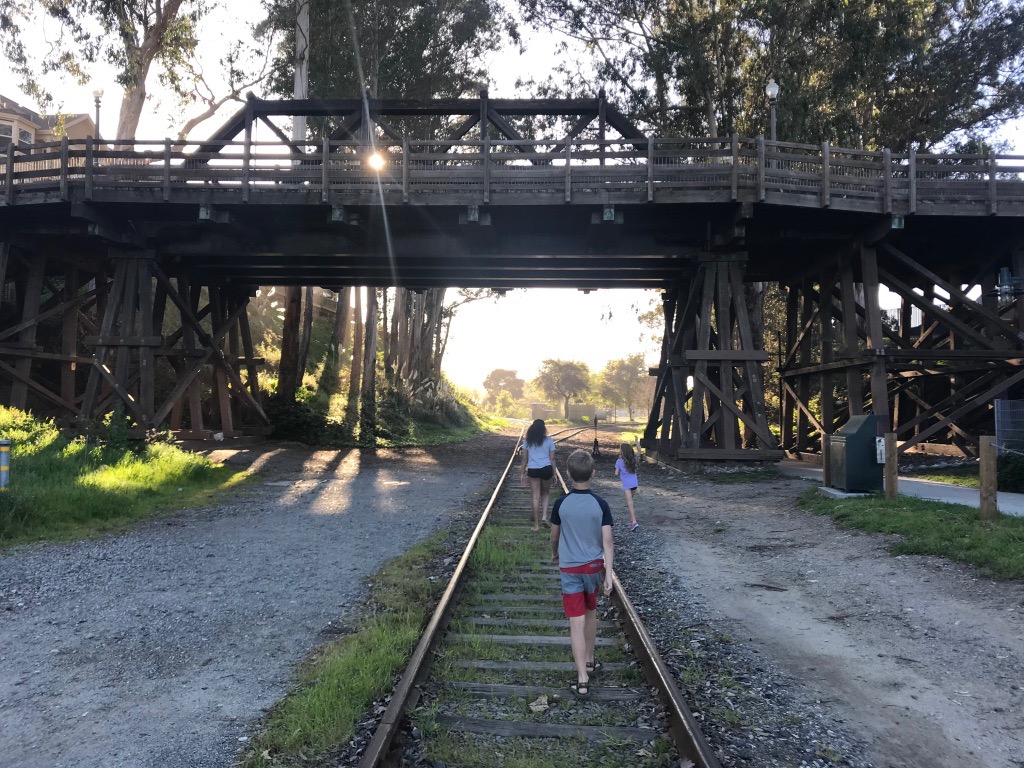I decided to write this post just in case someone out there is having some of the same school struggles as we’ve had. I want to share our dyslexic journey experience, so maybe someone starting this journey will be made aware of some of the things I wish I learned earlier. When we started our journey, I was completely clueless as to what dyslexia truly is — I thought it was nothing more than reading and writing words and letters backwards. This lack of knowledge did not do us any favors through the first three years of my son’s school experience.
Our dyslexic journey began early on. Toward the end of Kindergarten, my son was put on an IEP (Individualized Education Program) for speech articulation. We already knew he had a slight speech delay as even at 5 years old it was sometimes hard to understand what he was saying. It turned out this was only the beginning.
He was an active little boy, and he had a hard time focusing and sitting still. The school recommended that we perform a Conners Test to assess for ADHD, and the test’s results came back showing that he did fit into the parameters for having ADHD. Even though we had this diagnosis and we had started getting him some extra help and accommodations, he was still not progressing as expected in school.
In second grade the school requested he be assessed again — this time to see if he would qualify to receive special education services for academia in addition to his speech therapy. This next assessment showed that even though he has average to above average intelligence, he was still having problems learning. He did qualify for special education services, and the reason cited on the IEP was “specific learning disability.” We were optimistic knowing that he would now start getting even more help during school in the resource room, and that would hopefully help him catch up.
Everything seemed to be falling into place, but I was actually still a little confused. I didn’t understand why his IEP listed him as having a Specific Learning Disability instead of ADHD. What is “Specific Learning Disability” anyway? I did a little bit of research and found out that The U.S. Department of Education defines specific learning disabilities as disorders affecting psychological processes that comprise a student’s ability to “listen, think, speak, read, write, spell, or to do mathematical calculations.” ADHD falls into the category of “other health impairment.” After reading this, we assumed his learning disability was the result of his ADHD. He was still so young, and at that point we had heard so many stories of late bloomers that we didn’t think to dive deeper. Foolishly, I think my husband and I both held on to the notion that he was also just a late bloomer and the next year everything would magically get better. As you might guess, that wasn’t the case. Our dyslexic journey continued on.
We were now already in 3rd grade, and he was being pulled out of class for almost half of the day for both speech and for help in the resource room. The school seemed to be doing all they could to help my child get what he needed, but he still was struggling and falling farther behind. Homework was a nightly battle, and I was having a harder and harder time getting him to focus on our reading each night. I started to watch my little optimistic, fun loving, sweet boy become discouraged, anxious, and depressed. He started seeing the school therapist weekly due to his anxiety.
We eventually hit the point where everyone involved was frustrated. In our IEP meetings we heard everything from, “he just can’t stay focused,”or “we just don’t know what to do” to our favorite response, “he is consistently inconsistent.” These phrases ended up making matters worse, because they made me start to think that maybe my child is just being lazy, doesn’t want to learn, or do the work. These assumptions led to more problems at home and unnecessary punishments, and those eventually led to more anxiety. It’s a vicious cycle. We were years into our dyslexic journey and had yet to figure out dyslexia was part of the problem.
At the end of 3rd grade and the beginning of 4th grade, my son finally got to the point where he was convinced that he was unable to learn, so he shut down and stopped trying. Unfortunately, no one at school had any more ideas on how to help or what else to do. The next step the school suggested was to put him into a special day class in another school. While they weren’t sure this would help, they were out of ideas. This is where both my husband and I finally put our foot down.
We couldn’t send him somewhere without knowing what is actually wrong or how to help him. Something just didn’t feel right — there was no plan or foundation for making the change. We realized we’d lost control and were culpable for just going with the flow. We should have researched more into what is a specific learning disability instead of assuming it was mostly his ADHD causing the issues. Fast-forward — we later found out his ADHD is actually a thyroid problem and not ADHD, but that is for another post! We couldn’t keep shuffling him around, letting him fail, and watching his self esteem break down. We needed answers before trying anything else.
It was in the following weeks, over a glass of wine with my neighbor, when everything changed. She was telling me how her daughter was recently diagnosed dyslexia. She talked about the tutoring she was getting to help her daughter and that it was helping. I had heard of dyslexia, but as I said earlier, I knew nothing about it. As she was explaining the symptoms and signs, I almost couldn’t believe the words that were coming out of her mouth — she was describing what my son was dealing with to a tee. The very next day I was on the phone scheduling a screening. The results came back telling us that he has moderate-to-severe dyslexia. Further, we learned he also has what is called dysgraphia, a learning disability that affects writing abilities. It was a milestone in our dyslexic journey, and changed everything.
We realized we couldn’t do this alone anymore. We needed professional help and advice to make up for lost time and to get him on the right track— so we hired an advocate. The next school meeting we had was at the beginning of 4th grade. This time we came armed with the screening results, our advocate, and best of all, knowledge. From here on out our IEP meetings would never be the same.
Even today it still baffles me that in 3 years of endless meetings, so many meetings, not one single educator had ever brought up the word dyslexia. It’s as if it didn’t exist. How could someone not have known that dyslexia might have been the issue and that there are proven ways to help teach dyslexics? Instead, and despite all of the hours in meetings, my child’s educational struggles were discovered because of a random chance conversation over a glass of wine. I wish I would have stumbled upon this information earlier. I wish we had not blindly followed the guidance of the school just hoping for the best because clearly “they know best.” Research has proven that early intervention won’t cure dyslexia, but detecting it combined with the right teaching techniques will help a child become a proficient reader. Because all other learning, from math to science to everything else, is predicated on the ability to read and comprehend the content, becoming a reader is critical. Moreover, catching dyslexia early will help the child dodge many other struggles and obstacles later on.
After learning about and beginning to understand dyslexia, we knew to get our daughter screened for it as soon as we realized she was exhibiting many of the telltale signs for it. One major insight was that dyslexia often runs in families. Our daughter was diagnosed with it much earlier, and we had already started getting her the help she needed in the first grade. By starting her intervention early, she has been able to progress much more quickly than our son, who was finally receiving the appropriate intervention nearing the end of 4th grade. So many lost years where he should have been just another eager little learner but instead went to school to feel far less successful than those around him.
They are both now on the right track and continuously progressing. We ended up putting my son into the special day class for his 5th grade year, finally having a plan for what he needed to learn and what accommodations worked best for him. He is receiving Orton-Gillingham based tutoring through the
Pride Reading Program, which is a multi-sensory way of teaching dyslexics to read, write, spell and comprehend.
Slowly but surely, I am watching him grow his confidence back and feel better about himself. I know this is by no means the end; however, this has been our journey thus far — what a ride it has been. Our dyslexic journey is not over, but we’ve come a long way.
Below is list of signs of dyslexia in kids for ages Preschool through Teens. I found this list on
www.understood.org, which is a great resource for anyone with questions about dyslexia and other learning disabilities. If you see these signs in your child, it is so worth getting them screened. With Dyslexia and other learning disabilities, we have learned that early intervention is key. For a deeper dive on what has helped us on our dyslexic journey, check out my post “
Dyslexia: What Has Helped Us” on the blog.
Signs of Dyslexia in Preschool
- Often mispronounces words, like saying “beddy tear” instead of “teddy bear.”
- Was considered by his doctor to be a “late talker” (saying very few words by his second birthday) and has trouble saying words accurately (using “baby talk”).
- Often has trouble naming familiar objects, saying general words like thing and stuff instead of the names of objects.
- Has trouble learning a new word, even after you’ve tried to teach it to him many times.
- Has trouble learning nursery rhymes or song lyrics that rhyme, and has difficulty recognizing and producing rhymes.
- Has trouble remembering sequences, such as singing the letters of the alphabet or saying the days of the week in the right order.
- Often tells stories that are hard to follow; has trouble talking about an event in a logical order.
- Has trouble remembering and following directions with multiple steps.
- Can’t point out his own name and has trouble writing it.
Signs of Dyslexia in Grades K–2
- Has difficulty learning letter names and remembering the sounds they make.
- Confuses letters that look similar (b, d, p, q) and letters that have similar sounds (d/t; b/p; f/v).
- Struggles to read familiar words (like cat or the), especially when there are no pictures or other context clues; often skips over or confuses small words like to and as when reading aloud.
- Often substitutes words when reading aloud, like saying the word house when the story uses the word home.
- Doesn’t seem to know how to approach unfamiliar words, such as focusing on the sound of the first letter or looking at the vowels for clues to pronunciation.
- Has trouble with the vowels in words, such as knowing how vowels combine in words and that they have different sounds depending on how they’re combined.
- Has trouble hearing the individual sounds in words and/or blending sounds to make a word.
- Has trouble remembering how words are spelled and applying spelling rules in writing.
- Omits the end of a word when reading and writing (for example, leaving off the s in cats or the ed in jumped).
- Has trouble quickly coming up with a list of words (for example, if asked to say the names of 10 colors or 10 fruits) or retrieving the name of something.
Signs of Dyslexia in Grades 3–5
- Often confuses or omits small words like for and of when reading aloud.
- Frequently identifies a word incorrectly, even after having just read the same word correctly earlier in the same text.
- Has trouble sounding out new words; if a long word comes up when reading, often omits part of it or skips over it.
- Often can’t recognize common words (sight words) at a glance, such as where and there, and tries to sound them out.
- Often has trouble explaining what happened in a story or answering questions about key details.
- Has an easier time answering questions about a text if you read it aloud to him.
- Frequently makes the same kinds of mistakes, such as reversing letters (writing bots instead of dots) or mixing up the order of letters (writing stop instead of spot).
- Has trouble with spelling, such as quickly forgetting how to spell many of the words he studies or spelling the same word correctly and incorrectly in the same exercise.
- Avoids reading whenever possible or gets frustrated or agitated when reading.
- Takes a very long time to complete reading assignments.
- Seems to read at a lower academic level than the one at which he speaks; may have a smaller vocabulary than other kids his age because he doesn’t like to read.
Signs of Dyslexia in Teens and Tweens
- Often reads slowly, omitting small words and leaving out parts of longer words when reading aloud.
- Makes lots of spelling errors, sometimes misspelling words in ways that a computer spell-checker doesn’t know how to correct.
- Often struggles to remember common abbreviations, including ones that are used on social media, such as idk and cul8ter.
- Has trouble expressing ideas in an organized way or supporting an argument when doing writing assignments.
- Often seems to be searching for the words he wants to say and ends up using words like stuff or thing rather than a more specific phrase; or substitutes related words, like using the word gate instead of fence.
- Often doesn’t “get” the joke; has trouble understanding idioms and puns.
- Has an easier time answering questions about a page of text if it’s read aloud to him.
- Avoids reading whenever possible or gets frustrated or agitated when reading.
- Takes a very long time to complete reading assignments.
- Seems to read at a lower academic level than the one at which he speaks; may have a smaller vocabulary than other kids his age because he doesn’t like to








Very similar Journey to ours except my son was 16 before I had that accidental conversation and was found with moderate to severe severe Dyslexia. Unfortunately, at his age, this realization comes so late that he has already given up on his education. However, we have found a Susan Barton tutor who seems to have a magical touch with him. I have no idea what we’re going to do about that piece of paper (diploma)…after all the damage the educational system has done to his mental health, I feel like they owe him to just give it to him. I wish I also had not fallen prey to the assumption that educators know what they are doing. 🙁
I am so sorry you also had to go through all this. It’s definitely not an easy journey. How long has he been going through the tutoring? Don’t give up, the fact that he is open to the tutoring and making progress is such a great step in the right direction. His mental health should start to follow suit. I always tell my son that dyslexia will make him stronger because of how much harder he has to work and how he has had to learn to adapt to survive. Most people never learn those skills. Wishing you all the best. Please reach out if you ever have any questions. My neighbor’s child is also going through the Barton program and they love it!
He is finishing Book 3. It is starting to get more difficult, as we all expected. However, he does feel like it is helping, but is a slow process. He would like to begin working on Math as soon as his tutor feels he is ready. It is just so disheartening when dealing with the public school because it feels like they have completely given up on him. I try as hard as I can NOT to think about his future employment without a high school diploma. I just pray we can get him to the point that he can pass the GED test. He’s so tired of beating his head against an educational system that has left him behind without a care in the world. If you have any suggestions, I am definitely open to them
It’s definitely a slow process, but at least he is headed in the right direction. Our advocate once told us when I was freaking about about the same things, that he is on a different path and I that can’t compare it to where we think he “should” be. Is your son on an IEP? If not, it seems like he definitely should be able to qualify for one. That would give you both a lot more power to get him the accommodations he needs in school. You can also feel free to email me. 🙂